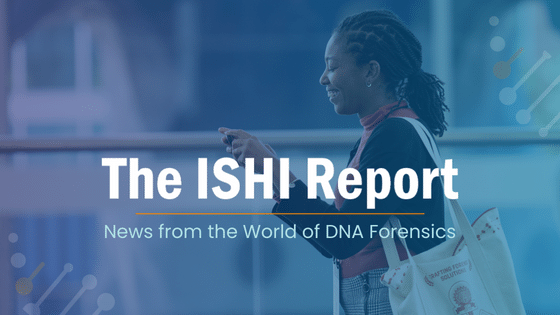As we embrace the vibrant spirit of spring here in Madison, Wisconsin, our May issue blossoms with insights and revelations from the forefront of forensic science. This edition is dedicated to not only uncovering the latest advancements but also to exploring practical challenges and innovative solutions within our field.
Workshop presenters Jason Moran, Kimberly Gin, and Dr. Claire Glynn delve into the intricacies of cold case resolutions through advanced DNA approaches, as detailed in the “Engaging Collaboration” workshop. Here, they share transformative strategies for tackling these challenging investigations with new genetic technologies and collaborative frameworks.
We also explore the significant advancements in forensic DNA analysis technologies, focusing on the integration of Next Generation Sequencing (NGS) with STRmix™ technologies. This feature specifically highlights STRmix™ NGS, the newest application of STRmix™ technology designed for the probabilistic genotyping of NGS-generated DNA profiles. This development represents a major leap forward, promising to enhance the depth and reliability of forensic analysis by integrating more sensitive and comprehensive data handling capabilities.
Our colleague, AnnaKay Kruger, caught up with former Student Ambassadors who share how the program shaped their careers and expanded their professional networks. It’s a testament to the enduring impact of early career support and community engagement in shaping the future of forensic science. Plus, we introduce this year’s Ambassadors!
Another highlight is the DNA Trainers Meeting, where leaders in forensic DNA training discuss optimizing educational practices to keep pace with technological advancements. Our interview with co-chairs Kelly Elkins and Eugene Lien offers a window into the evolving landscape of forensic training and its critical role in enhancing investigative outcomes.
In the realm of forensic communication, we present a compelling piece on the challenges and opportunities of science communication in forensic science from a Ghanaian perspective. It’s a thoughtful exploration of how effective communication strategies are essential for the advancement of forensic science in diverse international contexts.
For a lighter yet profoundly impactful read, don’t miss our feature on therapy dogs in forensic settings. Discover how these four-legged friends contribute to alleviating stress and enhancing well-being for forensic professionals.
Lastly, Mike Cariola and Abigail S. Bathrick of Bode Technology provide a detailed account of their current research on Forensic Investigative Genetic Genealogy (FIGG) technologies. Their article focuses on a comparative evaluation of genotyping technologies in sexual assault casework, highlighting the challenges and solutions for implementing high-density SNP genotyping in forensic investigations. This research is crucial for developing best practices and enhancing the identification of suspects and resolution of cases through FIGG.
We invite you to dive into these articles, which are designed not just to inform but also to inspire new ideas and foster discussions that propel our field forward. Your feedback and contributions are invaluable to us, and as always, we look forward to your active participation in the ongoing dialogue that shapes our community.
P.S. Don’t forget that abstracts for oral and interesting case presentation are due June 9th. Submit your abstract through the portal on our website.


